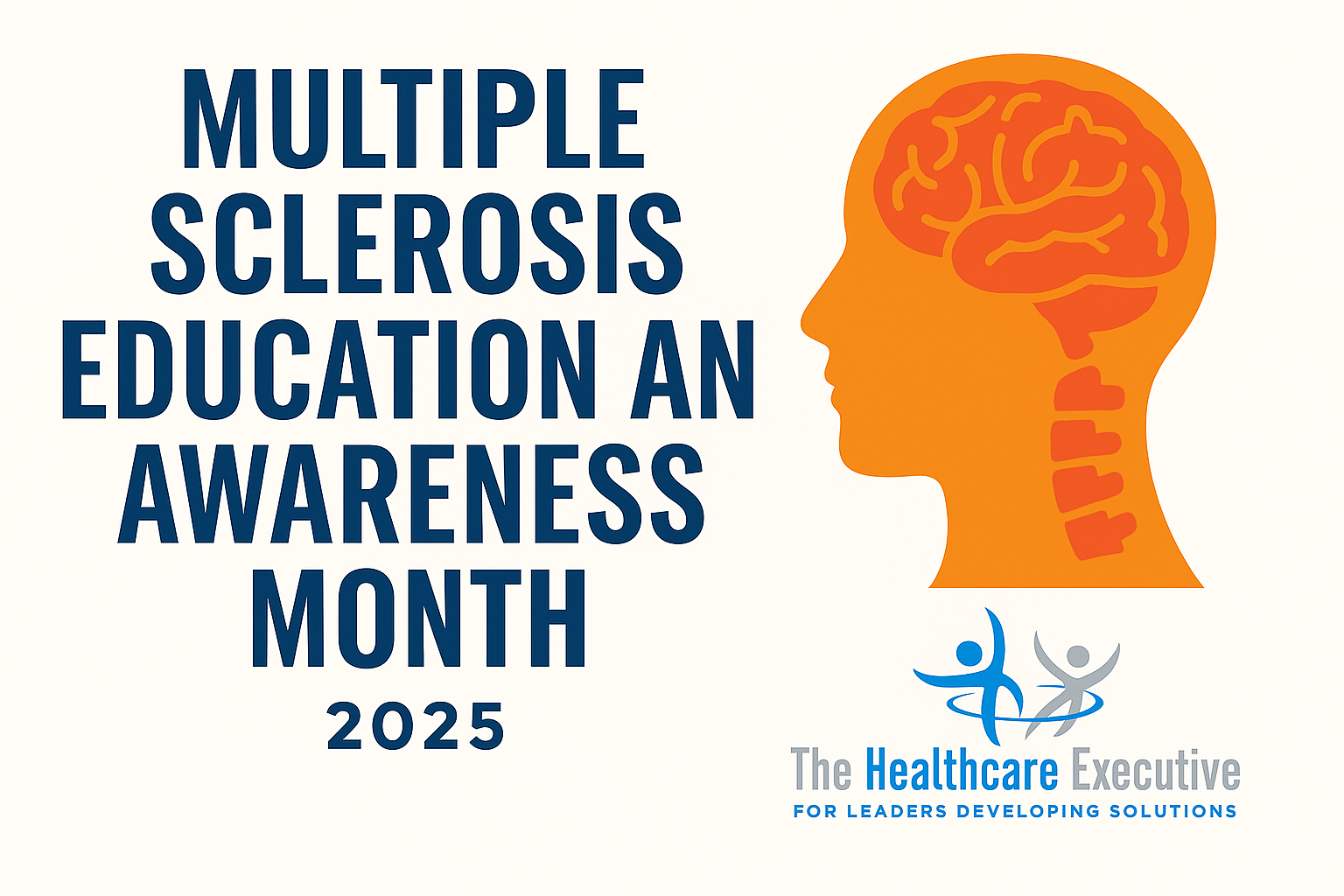Multiple Sclerosis Awareness Month 2025: What Hospital Executives Need to Prioritize

- Posted by Greg Wahlstrom, MBA, HCM
- Posted in Health Observance Calendar
Elevating MS Diagnosis, Workforce Training, and Care Access Through Strategic Leadership
Published: March 2, 2025
Multiple Sclerosis (MS) Education and Awareness Month presents an essential leadership opportunity for hospitals to evaluate their role in supporting one of the most complex neurological conditions. Affecting nearly one million Americans, MS requires long-term care coordination, rehabilitation, mental health integration, and timely access to disease-modifying therapies. Yet access and outcomes remain inconsistent across regions and populations. At Cleveland Clinic’s Mellen Center for MS Treatment and Research, patients benefit from a coordinated model that integrates neurology, rehab, and psychosocial services under one roof. Hospital executives must lead in creating integrated pathways that align specialty care with operational and strategic goals.
Diagnostic accuracy and speed remain top concerns. Many MS patients face delayed or missed diagnoses, especially in underrepresented communities and rural areas. Barrow Neurological Institute has adopted AI-assisted imaging protocols and multidisciplinary case review boards to reduce variability in diagnosis. CMOs and CIOs should work collaboratively to review how imaging, referrals, and EHR flagging protocols support or hinder early detection. Organizational investment in timely diagnosis isn’t just clinical—it’s operational. Speed, accuracy, and trust go hand in hand.
Clinician training must also evolve. Because MS presents with diverse symptoms—fatigue, motor issues, cognitive changes—frontline staff often misinterpret early warning signs. At Mount Sinai Health System, interdepartmental MS training is offered to emergency physicians, primary care, and nursing teams. Healthcare executives must view MS knowledge not as specialty-exclusive but as a required component of clinical literacy. By equipping providers with knowledge and clear referral frameworks, leaders empower earlier action—and reduce systemic delays.
Access to MS therapies remains uneven. Disease-modifying therapies (DMTs) are critical to slowing progression, yet cost, insurance navigation, and specialty access barriers remain formidable. UT Southwestern’s MS Center partners with care navigators to help patients manage affordability, logistics, and co-pay assistance. CEOs and CFOs must ensure payer alignment, pharmacy coordination, and patient financial assistance are included in population health initiatives. High-cost therapies cannot succeed without leadership-facilitated access frameworks.
Finally, health equity in MS must be a visible component of every strategic plan. According to the National MS Society, Black patients are often diagnosed later, receive fewer referrals to specialists, and are underrepresented in clinical trials. Hospital executives must embed DEI metrics and culturally responsive protocols into neurology programs. Community outreach, language access, and minority patient enrollment in clinical studies are more than side programs—they are core to equitable MS care. MS Awareness Month 2025 must serve as a leadership checkpoint for evaluating how systems meet the full continuum of care for all affected patients.
Discover More on Inclusive Strategic Planning
To explore how executive leaders can transform hospital care models to be more inclusive, data-driven, and equitable, read our featured analysis on trust-building in U.S. healthcare.
Internal Links
- Rebuilding Trust in U.S. Healthcare: A Leadership Blueprint
- The Healthcare Workforce Crisis: Executive Solutions That Actually Work



